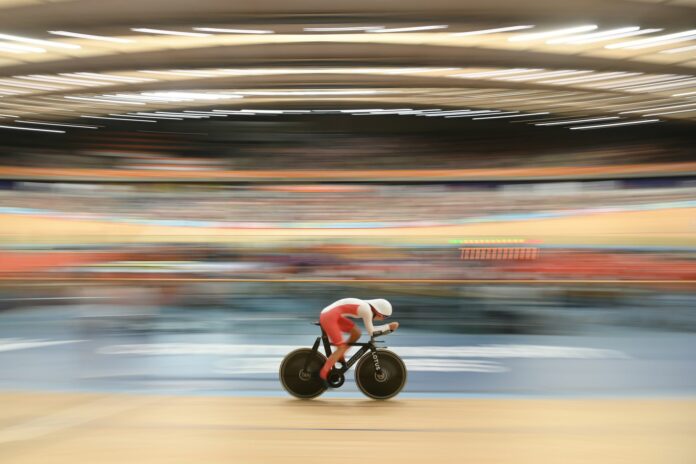From 28th July to 8th August, the Great British Cycling Team (GBCT) raced the bike in Birmingham at the 22nd Commonwealth Games using a new track bike produced with additive manufacturing. The production has been supported by engineering company Renishaw, a technology partner of the organization since 2019.
Remember that last year, both organizations worked together for the production of a track bike. Since the bike design has been updated, Renishaw AM team used its expertise to rapidly manufacture and prototype plastic and metal parts to ensure the part provided optimal aerodynamics.
British automotive company Lotus Engineering and Hope Technology – an expert in engineering bicycle components -, first collaborated to develop the new bike, particularly focusing on speed to maximise its performance and push for medals. British Cycling then approached Renishaw to join the development team, recognising the benefits of metal 3D printing when developing lightweight yet complex components.
In this case, Renishaw explains that rapid testing was essential. Carbon fibre is the most effective material for lightweight yet strong engineering, this requires injection moulding which takes longer from design to finished part than AM methods. The creation of a different mould for every design change made with carbon fibre means a slow testing process, whereas printed titanium allows for further innovation with part design and quicker turnaround during prototyping.
“The Commonwealth Games is a brilliant opportunity to display the innovation of British engineering as well as British talent on our home turf,” stated Ben Collins, Senior Additive Manufacturing Application Engineer at Renishaw. “The riders need the best equipment to perform at such high levels. By providing tailored AM parts to the cycling team, we can deliver the performance the team requires while also highlighting the potential of AM in producing high quality strong, lightweight, and complex components.”
British cycling benefitted from the rapid precision of AM when designing the parts that require customisation such as the handlebars. In Tokyo, custom handlebars were tailored to the riders’ hands for optimum ergonomics, these were able to be turned around quicker than specially moulded carbon fibre parts. This allows for any last-minute modifications to be made before the race, at Tokyo this was a necessary contingency that proved beneficial.
Remember, you can post job opportunities in the AM Industry on 3D ADEPT Media free of charge or look for a job via our job board. Make sure to follow us on our social networks and subscribe to our weekly newsletter : Facebook, Twitter, LinkedIn & Instagram ! If you want to be featured in the next issue of our digital magazine or if you hear a story that needs to be heard, make sure you send it to contact@3dadept.com


